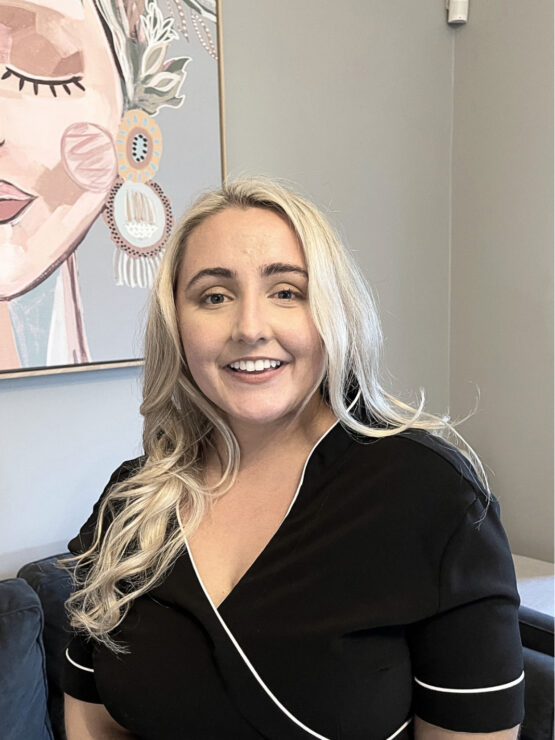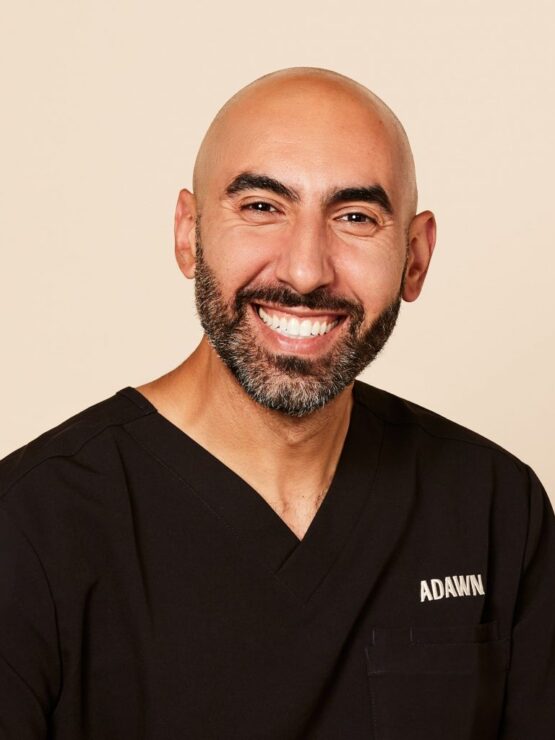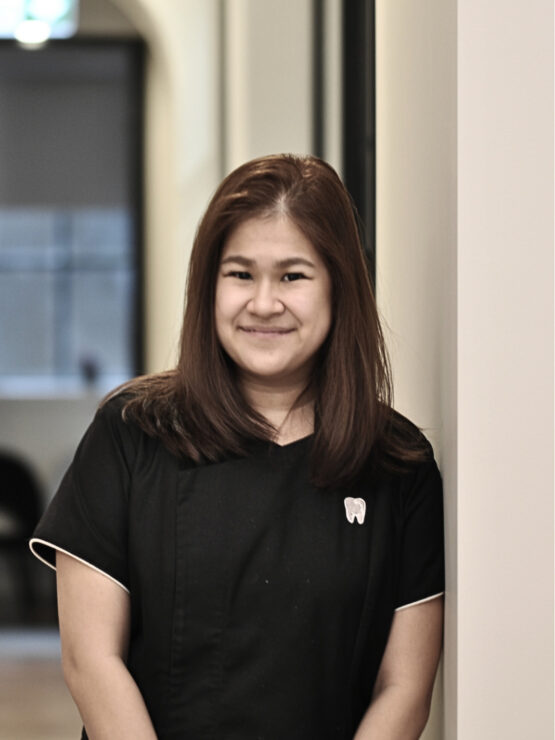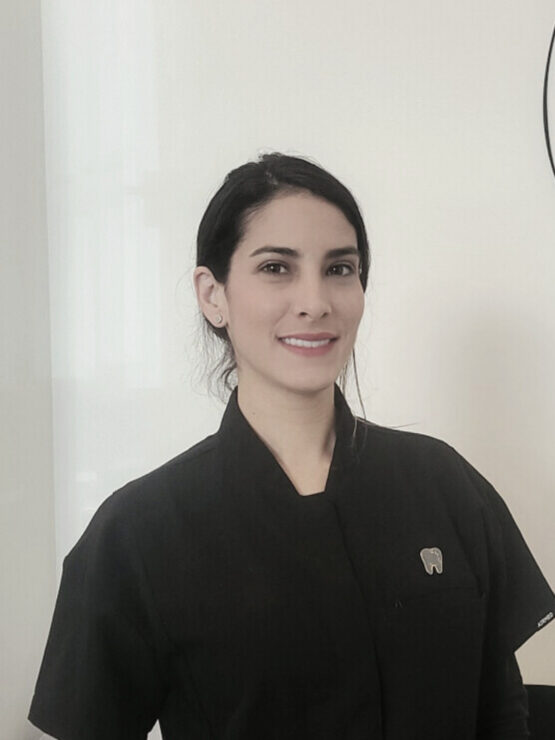TMJ Treatment, Melbourne
CHOOSE TOORAK DENTAL STUDIO
TMJ (temporomandibular joint) disfunction is not just uncomfortable - it can affect your lifestyle and often, it’s difficult to find the source of the problem.
The jaw pain, headaches, face pain, fatigue and other discomforts caused by TMJ disfunction can be diagnosed and treated by the TMJ experts at Toorak Dental Studio. As experts in the musculoskeletal system, we can examine your jaw and your bite to determine what’s causing the issues, to help you return to your normal quality of life.















TMJ Booking Request
Complete the form to provide us with a clearer understanding of how we can address your TMJ concerns.
For dental emergencies, please get in touch with us at 9804 7710.
We typically offer urgent care on the same day.

As your TMJ clinic in Melbourne
If you’re suffering from unexplained headaches, earaches, dizziness, jaw, neck, shoulder, back or throat problems, you may have TMJ disfunction. This could result from trauma to the surrounding tissue, a misaligned bite or clenching of the teeth. The TMJ experts at Toorak Dental Studio can alleviate the pain through a simple evaluation, as part of our dentistry treatments for children and adults in Melbourne.
TMJ
Everything You Need To Know
What is the temporomandibular joint (TMJ)?
The temporomandibular joint, commonly referred to as the TMJ, is located in the side of a person’s head, just behind the ear, and connects the jawbone to the skull.
It is the joint responsible for the opening and closing of the mouth, as well as many facial movements such as smiling and chewing.
Like with any other joint, strain and overworking on the TMJ can lead to health complications.
What is temporomandibular disorder (TMD)?
Temporomandibular disorder, more commonly known as TMD, refers to a group of diseases that affect the temporomandibular joint (TMJ). This dysfunction is interchangeably referred to as either TMD, TMDJ, or TMJ disorder.
TMD is a condition that affects a person’s jaw and, although relatively common, it’s not usually a serious health concern. The disease is characterised by pain, aches, and stiffness in the jaw, which can either worsen over time or heal on its own, depending on a person’s lifestyle.
For more information on what causes TMD, stay on this page and we’ll have all your questions answered.
What causes temporomandibular joint disorder?
Temporomandibular joint disorder (TMJD, or just TMD) is a relatively common cranial disease, with around 30% of adults experiencing TMD in some shape or form in their lifetime.
Common causes of TMD include grinding of the teeth, jaw clenching, stress, injury and trauma to the jaw, and medical conditions that affect the joints, such as arthritis. Given the variety of causes, TMD is fairly easy to acquire, but is also treatable.
Research indicates that certain activities that require a clenched jaw, such as playing the violin, can also lead to an increased likelihood of developing TMD and pain in the TMJ.
What are the common TMJ disorder symptoms?
TMJ disorder can manifest itself in a number of ways, all of which bring discomfort and pain in varying levels to the sufferer. To put it simply, TMJ disorder is an unpleasant experience that, if left untreated, can worsen over time.
Common symptoms include jaw pain, headaches, fatigue, face pain, and lockjaw (i.e., difficulty or strain upon opening your mouth). Sufferers also experience pain around the ears and temples, and may occasionally feel clicking or popping noises when moving their jaws.
If you experience any of these symptoms regularly, or if they have recently worsened, it’s time to see your doctor or dentist.
How is TMJ dysfunction diagnosed?
Since the exact causes of TMJ disorder are unclear and the symptoms overlap with other dysfunctions, there is no standard TMJ disorder diagnosis procedure.
Generally, however, the process starts with a discussion of your symptoms and an analysis of your jaw, including the range of motion and the sounds during movement. Next, a review of your medical history is completed before assessing your pain and discomfort in the jaw and head area. Your TMJ expert will ask you a number of questions, such as the frequency and severity of your pain, and if there seems to be a problem, your dentist or doctor will further examine the area using a CBCT scan or MRI.
The results of this examination are then used to diagnose and treat TMJ disorder. Treatment could be as simple as prescribing pain relief or muscle relaxants, or it could include drug-free physical therapies to improve the function of jaw muscles. In more severe cases, surgery may be required.
What treatments are available for TMJ disorders?
Fortunately, there are several TMJ disorder treatments that are available. These range from simple exercises to light surgical procedures, depending on the severity of the disease.
For mild cases, doctors will often prescribe pain relief medication or recommend simple jaw exercises which can strengthen your face muscles and ease the pain. Actively unclenching your jaw is another simple method to avoid further TMD pain.
Dentists can also treat TMJ disorders with soft splints. An impression is made of your lower teeth and a soft retainer is fashioned for you to wear at night. This prevents the effects of grinding and clenching in your sleep, easing the strain on your jaw muscles.
Committed to your long-term oral health
We’re committed to sourcing the origin of your pain and finding the treatment that will have you feeling your best again. Our high-quality patient-focused care means that, once we’ve treated TMJ, we provide regular comprehensive examinations to maintain the health of your teeth, gums and jaw.
State-of-the-art technology
Calm, soothing environment
Family-owned for over 35 years

When should book a consultation with a TMJ expert?
You should see a doctor if you’re experiencing one of the following things:
- You are finding it difficult to sleep due to the pain.
- You are unable to eat or drink.
- The pain is affecting you in your daily life.
- The pain is regular and keeps coming back.
We encourage you to book a consultation with our friendly dentists at your earliest convenience. For ongoing or acute pain, call us for a same-day appointment
NEW TO TOORAK DENTAL STUDIO? DISCOVER OUR IDEOLOGY OF CARE
Common questions about TMJ
- How can I reduce my risk of getting TMJ disorder?
- Can TMJ disorder go away on its own?
- What happens if TMJ disorder is left untreated?
- How do I permanently get rid of TMJ disorder?
- Is TMJ treatment covered by medical insurance?
- Can TMJ treatment cure tinnitus?
- How long does TMJ treatment take?
Stress and anxiety are leading causes of TMJ disorder, as this increases the chances of teeth grinding and jaw clenching. If your lifestyle is frequently stressful, you may want to consider alleviating some of this stress to reduce your risks of getting TMD.
Avoiding harm to the jaw also works in reducing TMD risks, so martial arts like boxing may not be the most proactive thing if you want to avoid developing TMJ disorder.
Other ways of preventing TMD include avoiding chewing gum and biting your nails.
Most cases of TMJ disorder are mild and brief, and they disappear by themselves without a particular treatment. So, yes, TMJ disorder can go away simply with time.
In some cases, however, TMJ disorder will persist and the pain might worsen over time. If you believe you have a more severe, longer-lasting case, you should see your doctor or dentist. Regular pain and discomfort that show no signs of slowing down is cause for treatment.
Most cases of TMJ disorder are mild and disappear in their own time without treatment. However, TMJ disorder can still lead to more severe consequences if left untreated for an extended period of time. Generally, you should see a doctor or dentist if you’re experiencing regular and ongoing pain.
If left untreated, in some cases TMD can lead to chronic jaw and head pain. This is often severely painful and will require pain-relieving drugs to stifle. Long-term TMD sufferers may also develop hearing problems, which in turn can lead to dizziness, fatigue, and additional health issues such as tinnitus.
Everyone’s TMD is different, so there’s no guarantee for anything to work permanently. However, there are both autonomous and orthodontic treatments that can provide lifelong relief for many TMD sufferers.
Many methods that cure TMJ disorder are self-administrative, meaning you can do these yourself in the comfort of your own home. You can take simple pain relief medication, switch to eating soft foods, and apply heat or cold to the affected areas of your jaw.
We can also provide more surgical methods that often prove highly effective at curing TMJ disorder. These include orthodontic treatments, bite rehabilitation, dentures, and retainers. Doctors can also perform small surgical procedures to remove and alleviate infections and decay in more extreme cases.
Patients with private medical and/or dental insurance may find that treatment for TMJ disorders is covered under their plan. Consult your insurance provider before undertaking a treatment to find out if you’re covered.
For those costs that aren’t covered, speak to us about interest-free payment plans to help spread the cost of your dental or medical work at Toorak Dental Studio.
Ringing sounds in the ear are sometimes caused by problems related to the muscles, cartilage and ligaments of TMJ. If your dentist or doctor evaluates you and can determine the relation between your TMJ and tinnitus, they will be able to treat it in most cases.
By addressing the underlying problems, they can prescribe an appropriate treatment to cure your tinnitus.
Once diagnosed, TMJ disfunction can usually be treated immediately, and even patients that have suffered for years can experience fast relief from the symptoms. This, of course, depends on the severity of the condition and some patients require mouth reconstruction or oral splints - in which case the may require oral appliances and treatment that usually takes a few months.
CONTACT US
Request a jaw pain consultation
Fill out the form below and we will contact you during our working hours.
If you have a dental emergency, please call 9804 7710. Urgent care is provided usually the same day.









